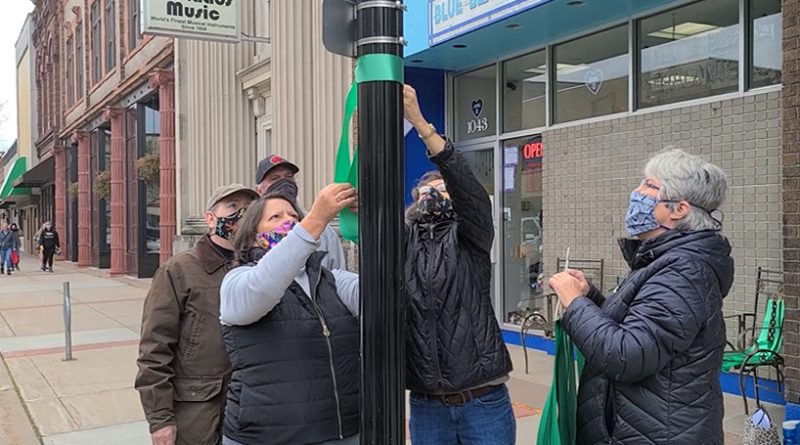Editorial: Mental illness should be treated as public health issue
By Brandi Makuski
Every cause is important to someone.
And many causes don’t get the attention they deserve, at least not until something tragic happens. One such issue is mental illness. Mental Health Awareness Month is celebrated in May, but October is designated as Emotional Wellness Month, with the first week of the month designated Mental Illness Awareness Week. But really, such an important issue shouldn’t be limited to a specific week or month on the calendar.
We should be talking about it, doing something about it, in some official capacity because it affects an estimated one in five people, according to the National Alliance on Mental Illness (NAMI).
To put that in terms we can better recognize, that amounts to 14,000 people in Portage Co.
Our community has lost many of its members by suicide or domestic violence due to a mental health crisis. Most recently—and publicly—76-year-old Daniel F. Sullivan of Amherst lost his life during an incident of domestic violence perpetrated by his son, Daniel P. Sullivan, 44.
The younger Sullivan reportedly told a VA nurse 24 hours beforehand that he wanted to kill, prompting a welfare check by police, who unsuccessfully attempted to get him further help via a 72-hour mental health evaluation. Sullivan, Jr., was comitted to life last August.
Losing someone as a result of mental illness creates an unimaginable sadness for the friends and families; and is often coupled with the undeserved burden of guilt that they could have done more to help their loved one. But it’s never that simple.
Living with a mental illness is hard. With many mental illnesses, there is no definitive medical testing to confirm their presence. Many who suffer from mental illness simply come to believe they’re not “normal,” or stop finding enjoyment in life, for no clear reason.
Loving someone with mental illness is also hard. Many of you reading this know how hard it is, and understand how difficult it can be to help someone who doesn’t believe they need help—or who comes to recognize it too late.
The symptoms of mental illness can be completely hidden, invisible to even those who live with, or are close to, that one-in-five. It can also be difficult for someone with mental illness to know when they need help—even harder to ask for it when they do.
Some mental illnesses manifest in different ways. Schizophrenia often doesn’t present itself until someone is in their late teens or early 20’s, and the affected person may not even realize they’re having auditory or visual hallucinations. If they become aware, the prospect of telling another person, or asking for help, might be too much for them to bear. Sometimes they simply succumb to the voices in their head, without anyone else having been the wiser.
Mental illness is also a significant issue in our criminal justice system. Sheriff Mike Lukas will tell you the Portage Co. Jail is no place for someone suffering from mental illness, but sometimes a person’s criminal activity leaves him and his deputies no other option.
We can argue all day about whether our elected officials at the city, county, and state levels are doing enough—or anything—to combat, or even acknowledge, the problem, or whether it should even be up to the government to address this issue.
But if we look at mental illness from a public health stance, the answer is an unconditional yes: government officials at all levels already encourage us to wear masks during the COVID pandemic, dispose of old prescription medication safely to avoid drug abuse, practice safe sex to avoid disease, and undergo regular screenings for breast and prostate cancers.
Perhaps, instead of spending time and money on bicycle lanes and diversity committees, our elected officials could spend some time working with mental health experts to create and maintain awareness campaigns on mental illness.
Mental health is a tricky thing to balance even in ideal circumstances. But when you dismiss any sense of normalcy during a pandemic and toss in protests and riots, bullies on social media, election nonsense, and the other general craziness of the past few years, and it’s a wonder we all don’t have a mental health problem.
We’ve already lost too much because someone with a mental illness couldn’t get the help they needed. Our community can’t waste any more time. We must address this now.

